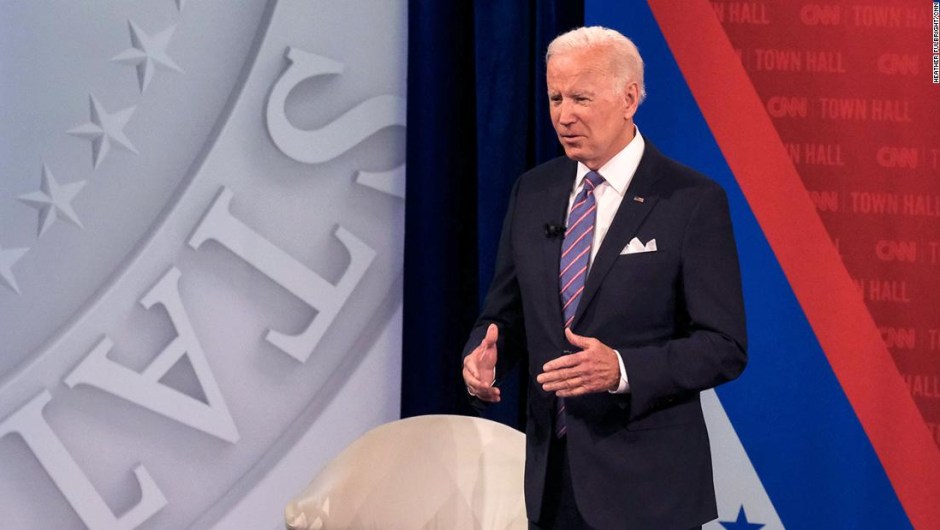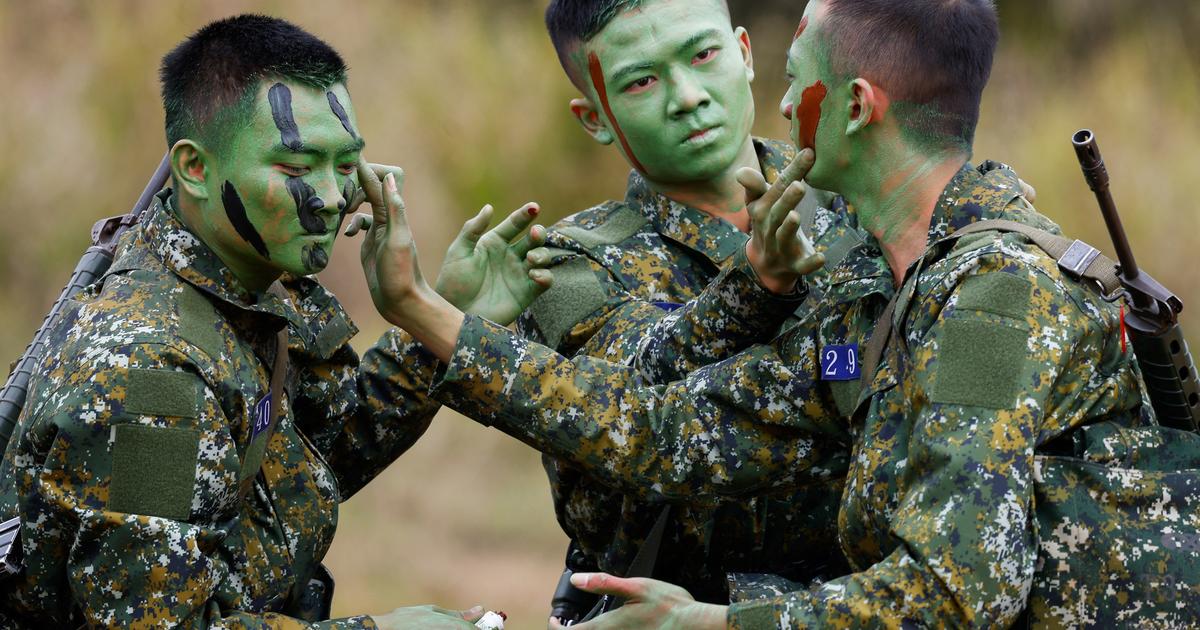Editor's note:
Jorge Dávila Miguel has a degree in Journalism since 1973 and has maintained a continuous career in his profession to date.
He has postgraduate degrees in Social Information Sciences and Social Media, as well as postgraduate studies in International Relations, Political Economy and Latin American History.
Dávila Miguel is a columnist for El Nuevo Herald on the McClatchy network, and a political analyst and columnist for CNN en Español.
The comments expressed in this column belong exclusively to the author.
See more at cnne.com/opinion
(CNN Spanish) --
President Joe Biden has said, or what he said implies, that the United States will go to war with China if it invades Taiwan.
It is at least the third time that he has mentioned it and the third time that the White House must correct what he said.
They are gaffes or blunders, the president has admitted: “I am a blunder machine – he said in 2018 – but, my God, what a wonderful thing compared to a guy who cannot tell the truth”, stating the ritual allusion to Donald Trump when some Democratic politician says or does something stupid.
But now Trump is not in the presidency.
And such statements can be dangerous, as in this case, when not inopportune and embarrassing, even if they only make the president of a great country like the United States less serious.
As it happened, yes, to President Trump in his term.
But isn't it just another exuberant nonsense to justify one's blunders, smug, just because another president's were worse?
The White House, after President Biden's public comment, clarified that there was no change in policy regarding China.
This policy is called "One China", and it means that the entire Chinese territory, including Hong Kong and Taiwan, constitutes a single country, and that the Government of that only country is that of Beijing, governed by Xi Jinping and the Communist Party. Chinese.
And it is part of the international agreements of the United States of America.
In the same way as the Taiwan Relations Law.
This policy began to take shape in 1972 with the visit of President Richard Nixon and his adviser Henry Kissinger to Beijing and their meetings with Mao Zedong and Zhou Enlai.
Everything had been outlined in 1971 during the secret visit to China of the National Security Adviser, Henry Kissinger.
Those were the first steps that, over time, and to this day, would result in three events of enormous political, economic and geopolitical importance.
Washington's recognition of Beijing, breaking diplomatic relations with Taipei, in January 1979
The enormous trade opportunity for American capital in the late 20th century, and China's rise to economic and military superpower status in the 21st century.
And finally, the current demand of Beijing (and Moscow) for a new world order, multipolar, different from the current one, unipolar, where the United States is totally hegemonic since the Soviet Union dissolved in 1991.
Richard Nixon reportedly had his sights set on China as far back as 1967, when he published an article on the subject in Foreign Affairs Magazine, saying "we simply cannot afford to leave China out of the family of nations."
Four years later, in 1971, and miraculously coinciding with the Kissinger pre-agreements in China, Taiwan was expelled from the UN and its place was given to communist China, with a permanent seat on the United Nations Security Council.
In reality, when we look at the current tensions between the United States and China over Taiwan, we are living the consequences of the frame of reference designed by Nixon and Kissinger 50 years ago.
That's a fact.
Nixon was no fool.
His geopolitical objective was to feed the traditional differences between the two great communist countries: the USSR and China.
And that China, moreover, graciously became anti-communist and democratic as soon as it tasted the delights of consumption.
But, wonders and surprises of life, 50 years later, Beijing is still communist;
Moscow, capitalist, with a mixed market economy and the two have agreed on a strategic alliance against the United States, for the change towards a multipolar world.
In that strategic alliance there are two main points of confrontation: Ukraine, where a war is already being waged where the Biden administration is excited, and Taiwan, where President Biden commits his possible intentional “blunders”.
One only has to glance at the few pages of the Law on Relations with Taiwan, which has regulated relations between Washington and Taipei for half a century, and where the commitment to intervene by the United States in the face of the Chinese invasion of Taiwan is not mentioned. .
There may be an explanation for the above.
The US policy maintained with Taiwan is commonly called Policy of ambiguity, that is, confused and indeterminate.
Washington recognizes Beijing's sovereignty over the island of Taiwan, but when Beijing wants to exercise that sovereignty, Washington has its say on a matter that should be internal.
This Monday, the Chinese government warned: "The United States is 'playing with fire,'" after President Joe Biden promised to defend Taiwan if China tries to take it by force.
It is unthinkable that President Biden does not know the text of the Law on Relations with Taiwan and mistakenly says in his last gaffe, in Tokyo, "that is the commitment we made", referring to the military intervention whose possibility is not contemplated in said law .
If not, with the repeated mentions of the matter, later nuanced by the White House, he must have seriously doubted his mental capacity.
Because he can get us -unwittingly- into a war.
But the matter is more serious, President Biden can, and I think he perfectly understands the reality that surrounds him, and that the hegemonic role of the United States in the world is being challenged;
and although what he says in Tokyo and what he does in the Ukraine is nonsense, he is willing to fight, like a brave man, in any field, against Russia and China.
Hegemonic power is, in essence, the main historical cause of wars, perhaps the only one.
Although we will always have the doubt, until we feel the first nuclear bomb, whether President Joe Biden handled the matter as a brave champion of democracy, or if we went down the drain because he did not realize it.





